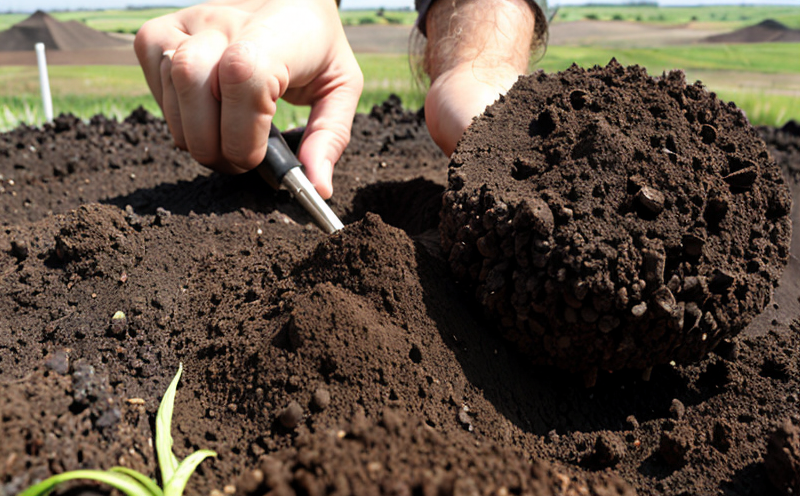ISO 16264 Hydrocarbons GC MS Test in Water Validation Method Development Test
The ISO 16264 test is a critical method used to analyze hydrocarbon content in water, ensuring that the quality of drinking and industrial water meets stringent international standards. This service focuses on validating methods using gas chromatography-mass spectrometry (GC-MS) for hydrocarbon analysis in water samples.
Hydrocarbons can originate from various sources such as petroleum products, fuel spills, and natural seepages. Contamination of drinking or industrial water by these substances poses significant risks to human health and the environment. Therefore, accurate and reliable testing methods are essential to monitor hydrocarbon levels in water.
The ISO 16264 standard provides a robust framework for validating analytical methods used to determine hydrocarbons in water. This method is particularly useful when developing or validating new analytical techniques or refining existing ones to ensure they meet the required precision, accuracy, and reliability.
During this service, we will perform several key steps: sample preparation, analysis using GC-MS instrumentation, data processing, and reporting results according to ISO 16264 guidelines. Our team ensures that all tests are conducted under controlled conditions, adhering strictly to the standard’s requirements. This approach guarantees consistent and reproducible results.
One of the primary challenges in hydrocarbon testing is accurately identifying and quantifying complex mixtures of compounds present in water samples. By employing GC-MS technology, we can achieve high sensitivity and selectivity necessary for detecting even trace amounts of hydrocarbons. Additionally, this method allows us to differentiate between various types of hydrocarbons based on their molecular structures.
The validation process involves comparing the performance of our proposed analytical method against reference methods already established by ISO 16264. During this comparison, we assess parameters such as linearity, precision, accuracy, robustness, and reproducibility. These evaluations help establish confidence in the reliability of our test results.
Our expertise lies not only in performing these tests but also in providing detailed insights into their implications for quality management and compliance purposes. By understanding how your organization fits within broader regulatory frameworks like ISO 16264, we can offer tailored solutions that align with both internal needs and external requirements.
In summary, our ISO 16264 Hydrocarbons GC-MS Test in Water Validation Method Development service offers comprehensive support for those involved in water quality assurance. Through rigorous testing procedures and meticulous adherence to international standards, we provide accurate data which can be used effectively by various stakeholders including quality managers, compliance officers, R&D engineers, and procurement teams.
Applied Standards
The ISO 16264 standard specifies the procedure for validating analytical methods used to determine hydrocarbons in water. It covers aspects such as method selection criteria, calibration, sample preparation, analysis procedures, data evaluation, and reporting.
- ISO 16264-1: General principles and requirements
- ISO 16264-2: Specific requirements for analytical methods used to determine hydrocarbons in water
- ASTM D7089: Standard test method for determining hydrocarbon content in petroleum products using gas chromatography-mass spectrometry
The application of these standards ensures consistency and comparability across different laboratories, facilitating interoperability between various stakeholders involved in water quality monitoring.
Benefits
- Compliance Assurance: Ensures that your organization complies with relevant international standards for hydrocarbon testing.
- Risk Management: Identifies potential risks associated with hydrocarbon contamination in water supplies early on, allowing proactive mitigation strategies to be implemented.
- Quality Improvement: Provides valuable insights into the performance of analytical methods used within your organization, facilitating continuous improvement efforts.
- Customer Satisfaction: Demonstrates commitment to delivering high-quality products or services by ensuring that all relevant tests are conducted according to recognized international standards.
In addition to these direct benefits, successful validation using the ISO 16264 Hydrocarbons GC-MS Test can enhance your reputation among customers and partners who value stringent quality controls. It also supports long-term sustainability goals by reducing environmental impacts caused by hydrocarbon pollution.
Quality and Reliability Assurance
We employ strict quality assurance measures throughout every step of the ISO 16264 Hydrocarbons GC-MS Test in Water Validation Method Development process. From initial sample collection to final result reporting, each phase is meticulously documented and reviewed.
- Sample Collection: Ensures that samples are representative of the entire water body being tested. Proper sampling techniques minimize errors introduced during analysis.
- Laboratory Conditions: Maintains optimal temperature and humidity levels to prevent any degradation or alteration of sample properties before testing begins.
- Instrument Calibration: Regularly calibrates all instruments used in the test against certified reference materials to ensure accurate measurements.
- Data Analysis: Utilizes advanced statistical methods to analyze raw data collected during the analysis process, ensuring that only reliable information is reported.
By maintaining such rigorous quality standards, we guarantee that our clients receive trustworthy and reproducible results every time. This commitment to excellence not only enhances your organization's credibility but also contributes positively towards protecting public health and safeguarding natural resources.





